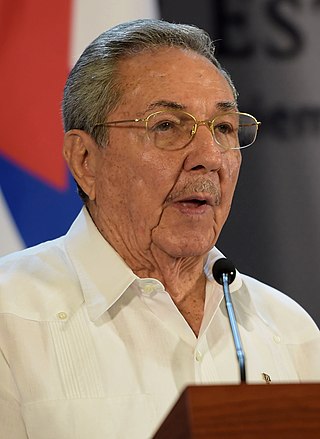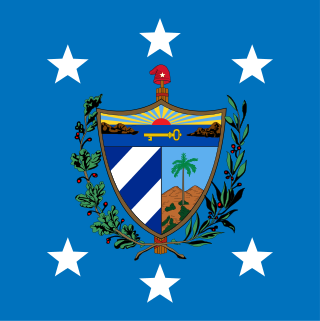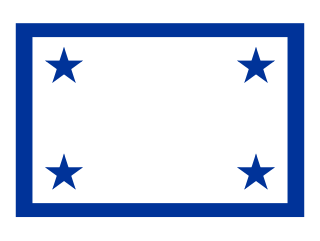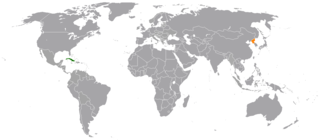| |||||
| Decades: | |||||
|---|---|---|---|---|---|
| See also: | |||||
The following lists events that happened during 2013 in Cuba .
| |||||
| Decades: | |||||
|---|---|---|---|---|---|
| See also: | |||||
The following lists events that happened during 2013 in Cuba .

Cuba has had a socialist political system since 1959 based on the "one state – one party" principle. Cuba is constitutionally defined as a Marxist–Leninist state. The present Constitution of Cuba, which was passed in a 2019 referendum, also describes the role of the Communist Party of Cuba to be the "leading force of society and of the state" and as having the capability of setting national policy, and First Secretary of the Communist Party is the most powerful position in Cuba. The 2019 Constitution of Cuba identifies the ideals represented by Cuban independence hero José Martí and revolutionary leader Fidel Castro as the primary foundation of Cuba's political system, while also stressing the importance of the influence of the ideas of Marx, Engels, and Lenin.

Raúl Modesto Castro Ruz is a retired Cuban politician and general who served as the first secretary of the Communist Party of Cuba, the most senior position in the one-party communist state, from 2011 to 2021, and President of Cuba between 2008 and 2018, succeeding his brother Fidel Castro.

The president of Cuba, officially the president of the Republic of Cuba, is the head of state of Cuba. The office in its current form was established under the Constitution of 2019. The President is the second-highest office in Cuba and the highest state office. Miguel Díaz-Canel became President of the Council of State on 19 April 2018, taking over from Raúl Castro, and has been President of Cuba since 10 October 2019.

The prime minister of Cuba, officially known as the president of the Council of Ministers between 1976 and 2019, is the head of government of Cuba and the chairman of the Council of Ministers (cabinet). The prime minister is the third-highest office in Cuba, after the First Secretary of the Communist Party of Cuba and the President of Cuba, and the second-highest state office.
The Cuban Revolution was the overthrow of Fulgencio Batista's regime by the 26th of July Movement and the establishment of a new Cuban government led by Fidel Castro in 1959.
Same-sex marriage has been legal in Cuba since 27 September 2022, after a majority of voters approved the legalization of same-sex marriage at a referendum two days prior. The Constitution of Cuba prohibited same-sex marriage until 2019, and in May 2019 the government announced plans to legalize same-sex marriage. A draft family code containing provisions allowing same-sex couples to marry and adopt was approved by the National Assembly of People's Power on 21 December 2021. The text was under public consultation until 6 June 2022, and was approved by the Assembly on 22 July 2022. The measure was approved by two-thirds of voters in a referendum held on 25 September 2022. President Miguel Díaz-Canel signed the new family code into law on 26 September, and it took effect upon publication in the Official Gazette the following day.

José Ramón Machado Ventura, M.D. is a Cuban revolutionary and politician who was the First Vice President of the Council of State of Cuba from 2008 to 2013. With the election of Raúl Castro as President of Cuba on 24 February 2008, Machado was elected to succeed him as First Vice President, serving until 2013. He was elected Second Secretary of the Communist Party of Cuba in 2011.

Miguel Mario Díaz-Canel y Bermúdez is a politician and engineer who is the 3rd and current first secretary of the Communist Party of Cuba. As first secretary, he is the most powerful person in the Cuban government. Díaz-Canel succeeds the brothers Fidel and Raúl Castro, making him the first non-Castro leader of Cuba since the revolution. Díaz-Canel's leadership thus represents a non-dynastic form of succession for the party as well as for the state, and the end of Castro leadership in Cuba.

The First Secretary of the Central Committee of the Communist Party of Cuba is the de facto leader of Cuba. The First Secretary is the highest office within the Communist Party of Cuba as well as ranking first in the Politburo, the highest decision-making body in Cuba, which makes the office holder the most powerful person in the Cuban government. In communist states the First or General Secretary of the Communist Party is typically the de facto leader of the country and a more powerful position than state offices such as President or Prime Minister, when those positions are held by different individuals. From 1961 until 2011, the position of First Secretary was held by Fidel Castro, who was Prime Minister of Cuba and, until 2008, President of the Council of State. Miguel Díaz-Canel, who has been President of Cuba since 2019, was elected First Secretary of the Communist Party on 19 April 2021, succeeding Raúl Castro, who was First Secretary from 2011 until 2021. The post was named in imitation of the title of First Secretary of the Communist Party of the Soviet Union, which was used by Nikita Khrushchev and, briefly, Leonid Brezhnev.

Cuba–Uruguay relations refers to the diplomatic relations between the Republic of Cuba and the Oriental Republic of Uruguay. Both nations are members of the Community of Latin American and Caribbean States, Group of 77, Organization of Ibero-American States and the United Nations.

Cuba–Mexico relations refers to diplomatic and bilateral relations between the Republic of Cuba and the United Mexican States. Both nations are members of the Association of Caribbean States, Community of Latin American and Caribbean States, Latin American Integration Association, Organization of Ibero-American States, and the United Nations.

Parliamentary elections were held in Cuba on 11 March 2018 to elect members of the National Assembly of People's Power. Prior to the elections, President Raúl Castro declared he would not be seeking a new term, and a new President of the Council of State will be elected by the National Assembly. His deputy, Miguel Díaz-Canel, was subsequently elected as the new president. However, Castro remained the First Secretary of the Communist Party of Cuba, the most senior position in the country.

Cuba–North Korea relations are the bilateral relations between Cuba and North Korea.
Events in the year 2017 in Cuba.
Events in the year 2018 in Cuba.

Salvador Antonio Valdés Mesa is a Cuban politician and former trade union leader. He is the First Vice President of Cuba since April 2018 and is a member of the Political Bureau of the Communist Party of Cuba. He was elected to succeed Miguel Díaz-Canel as First Vice President of Cuba on 19 April 2018.
Events in the year 2019 in Cuba.
First Lady of Cuba is de facto title of the wife of the President of the Republic of Cuba. The current first lady of Cuba is Lis Cuesta Peraza, the second wife of President Miguel Díaz-Canel, who is also the First Secretary of the Communist Party of Cuba, the most senior position in the Cuban government. She is the first presidential wife to be referred to as "first lady" by Cuban state media since the 1960s.